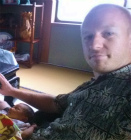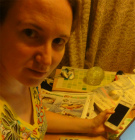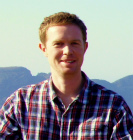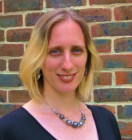4-2 “Stealin' Time” (Time management and translation styles)
パネリスト:
ダーギー・ダグラス Doug Durgee

Like many others, Doug Durgee stumbled into translation after a few years living and working in Japan at various office positions. He now translates out of Sendai, where he helped to start TRAC, the new Tohoku regional branch of the JAT. Doug is also now facing a new challenge: balancing work with a newborn son.
内村ウェンディ Wendy Uchimura

Wendy Uchimura has been working with the written word professionally since 2004. She splits her time between in-house and freelance work in Tokyo and Yokohama, while having fun raising two children and studying law.
ラッシュブルック・トバイアス Tobias Rushbrook

After around ten years working in-house as a translator and interpreter, mostly for law firms, Toby began working freelance in 2013. While Toby has dabbled in subtitling and literature, the law has a way of catching up with him. Toby graduated from the University of Queensland with MAJIT and is also a graduate of Simul Academy.
モデレーター:
エベースト・キャシー Cathy Eberst

報告者:梅村フィデス Fides Umemura (日英翻訳者)
Time is a translator’s most valuable resource. We spend a huge chunk of it translating, and then use up more to maximize the quality of our work: looking up terms, researching the subject matter and revising. Simultaneously, we try to minimize this time so that we can ultimately earn more. In this session, J-E translators Doug Durgee, Tobias Rushbrook and Wendy Uchimura, with Cathy Eberst as moderator, shared their strategies for staying focused, scheduling and prioritizing to “steal more time” out of their work day.
Work environment
The panelists are presently in different situations in life, which is reflected in their preferred work environment. Dividing her time between in-house and freelance jobs, Uchimura is usually on the go. She brings everything she needs in her work bag and works in cafés and even on trains. Durgee also recently started working from cafés because of the distraction of a baby at home but wants to be in a shared office soon. Rushbrook, however, cannot concentrate in cafés and prefers having the original manuscript right beside the computer while translating at home.
Translation process
Rushbrook uses a two-step process of drafting and proofreading. Since the drafting stage can take up a lot of time and energy, he makes sure to go through it as quickly as possible. This means leaving the research until after, at the proofreading stage, which helps lessen Internet time and consequently, overall time spent for translation. On the other hand, Durgee finds advance preparation, gathering reference materials and researching beforehand, helps make the translation go faster. If he encounters anything that needs to be looked up while translating, he highlights it for checking later. In contrast, Uchimura does not separate research from translating work and looks it up as she goes along.
Peak efficiency
Peak hours also differ for all three panelists. Durgee starts off with checking translations from the previous day. He tries to finish a large part of the day’s translation in the morning although he is most efficient at the end of the day, before his self-imposed daily deadline of 6 pm. In contrast, Rushbrook is a night owl. He aims to start translating by mid-morning but doesn’t peak until around 5 pm. On the other hand, Uchimura finds herself focused mid-morning and mid-afternoon. One thing they do agree on is that they are all more efficient when working toward a looming deadline!
Work vs. personal time
To balance work and personal life with children, Uchimura makes sure she is out of the office by 4 pm. She also tries not to work on weekends or take on rush jobs. Likewise, Durgee allots time after 6 pm for family and tries to cut out working on weekends and nights. Rushbrook does not have any problem working on weekends, although they all agree on setting rush rates for weekend jobs.
Internet, email and social media
Although for Durgee the Internet is a translator's best tool, it is also a huge distraction from paying work, along with emails and social networks. It is a big time trap particularly when you get fascinated with reading Wikipedia articles like Rushbrook or when you have a streak of perfectionism and can revise endlessly like Uchimura. To control the constant stream of emails, Rushbrook relies on phone calls for urgent stuff, while Uchimura limits emails and social media to her smart phone.
Managing work time
The panelists also had different strategies regarding time management. Durgee uses a to-do list. He recommends setting small goals reinforced by rewards throughout the day. Uchimura focuses on limiting wasteful non-work related activities, and fills out her non-office schedule with freelance work and post-graduate studies. However, making invoices and bookkeeping are unanimously burdensome for both panelists and the audience. Many use or are considering the services of an accountant and some even recommend outsourcing invoicing and email.
The panelists came up with plenty of great advice that’s worth trying out, but their different translation styles made it abundantly clear that there is no one-size-fits-all. Choosing the right approach all comes down to what yields better results for you as a translator.
